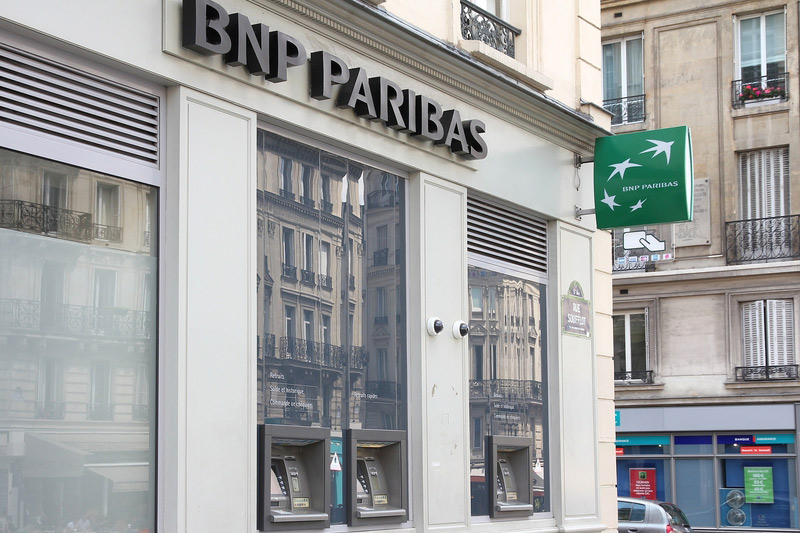By Kathleen Caulderwood - For the second time in a month, a foreign bank faces a multibillion-dollar fine to settle possible criminal charges filed by American authorities. But this time it's different because the terms of the settlement include a provision that could actually damage the bank's ability to conduct business and attract clients.
French bank BNP Paribas (PARIS:BNPP) and American prosecutors are working out the terms of a $8 billion to $9 billion fine for violating U.S. sanctions by hiding transactions with countries such as Sudan, Iran and Cuba. It’s just the latest in a string of high-profile cases in the past few years, such as last month's $2.6 billion settlement with Credit Suisse to settle charges of helping U.S. citizens avoid taxes. But in the BNP case more important than the fine is a possible ban on U.S. dollar transactions.
In addition to the fines, the rumored agreement with The New York Department of Financial Services will require that the bank plead guilty to violating the International Emergency Economic Powers Act, and put a hold on its ability to make U.S. dollar transactions, according to the Wall Street Journal.
A U.S. ban on dollar transactions is much more influential than it would be if it involved foreign currencies in most other countries. Dollars are used as international currency in many cases, and even when transactions occur in other countries, they’re ultimately cleared in the United States, processed through the Federal Reserve’s Fedwire Funds Service System.
“It is a new form of punishment,” said Oliver I. Ireland, a partner at Morrison & Foerster, to The New York Times earlier this month. “It seems to me to be a very uncertain tool to achieve an end.”
The potential of such a ban has had French authorities up in arms for weeks. Earlier this month, authorities pushed back against the possible penalties, saying it could have major repercussions for trans-Atlantic trade.
“If there is a violation of a rule, it is normal to have a penalty, but the penalty must be proportional and reasonable,” French Foreign Minister Laurent Fabius said on June 3, according to the WSJ. “These figures are not reasonable.”
It’s possible that BNP Paribas could contract other banks to do its clearing during the suspension period. This could help them survive the ban, but it could also push some of the current and potential clients towards competitors.
“When your client has to go to a rival bank to get the most basic banking service, even for a few months, you’ll lose them,” said Fred Cannon, head of research at Keefe, Bruyette & Woods Inc., to Bloomberg.
“Not all, but some will take their business completely to that rival and not come back.”
As for the actual fine, it’s relatively small, according to Morningstar banking analyst Erin Davis.
“That’s obviously a giant pile of money, but BNP is a giant company and I think they’re going to be able to absorb it,”she said.
Their $8 billion or $9 billion fee represents a little less than a third of the total $30 billion in transactions made with sanctioned countries.
“This fine is meant to be more punitive more than other fines have been in the past,” Davis said. “It’s a way for regulators and prosecutors to show that government is taking misconduct more seriously,” she added.
In a similar case in 2013, Royal Bank of Scotland (LONDON:RBS) paid $100 million in penalties on $32 million in transactions. The year earlier, Standard Chartered (LONDON:STAN) paid $667 million on the same amount of illegal transactions.
